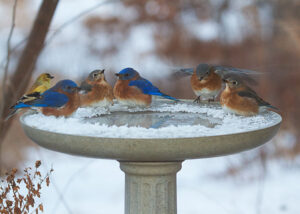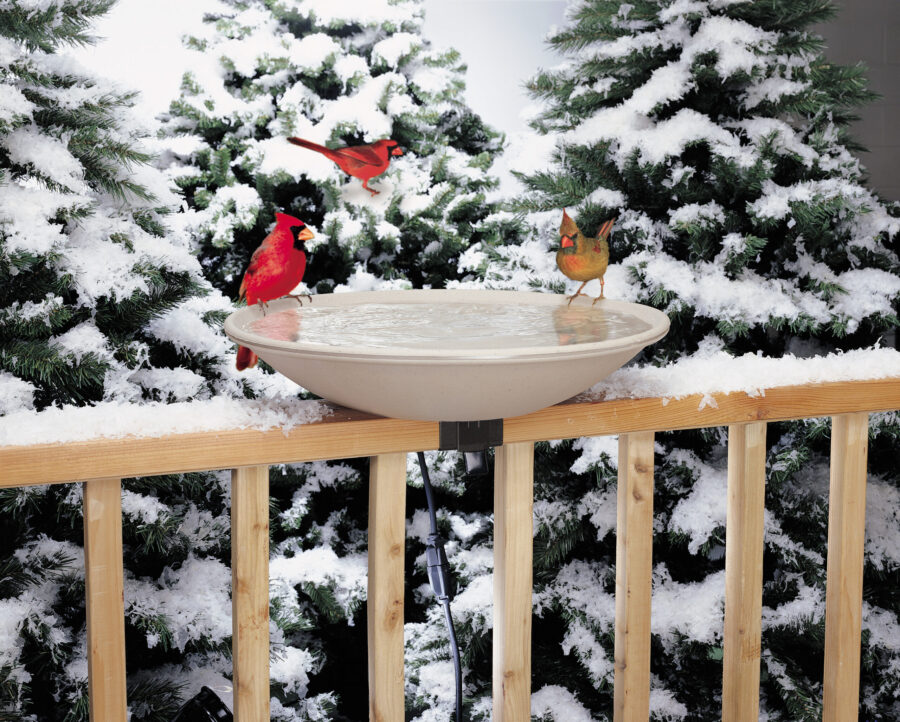Water sources are key to a successful garden habitat for wildlife.
Just like humans wildlife needs plenty of fresh water to survive. Wild birds need access to clean water all year round, but when winter temperatures dip into the freezing range, this may be harder to find. Birds can quench their thirst by eating snow, but this requires large amounts of energy, which they need to keep themselves warm.
Birdbaths are pretty common in summer, but very few folks think of providing water in winter. “Water is so essential to the well-being of wildlife,” says Nick Clausen of Backyard Nature Center, “but it can also be extremely tough to find as temperatures drop below freezing. This is especially true when daytime temps don’t rise much. It’s at times like this that open water can be life-saving,” says Clausen.
If you already have a birdbath, then you’ll want to consider your options for heating it.
While there are plenty of different types of birdbath heaters or deicers available, Clausen has found those with thermostats in them to be safer and more efficient.
A heated birdbath, kept filled through the freezing cold of winter may be the only ready source of unfrozen water for wildlife in your entire neighborhood, so it will be well used. The thermostatically controlled units will turn on when the temperatures drop below freezing and automatically turn off when the temperature rises, so they only cost pennies a day to use.
‘If you don’t have a handy plug, consider getting a birdbath that won’t break with winter’s ice and then just try to fill it each morning with warm water,’ says Clausen. ‘The birds will begin to know when to look for it and come to expect it,’ he adds.
And don’t worry about birds freezing to death from taking a dip in the heated birdbath. That’s one of those myths that seem to keep flying about. Birds will drink the water, but when it’s that cold out they will not bathe in it. You may also want to put a shallow pan with heated water on the ground for rabbits, or other wildlife that can’t quite reach the birdbath.

Remember our feathered friends: Offer much-needed water with a heated bird bath. Water that is free of ice is so critical when ponds, streams, and most bird baths are frozen solid. Some birds will dehydrate during winter.
Songbirds also have to bathe during freezing temperatures to keep feathers in tip-top condition to insulate themselves when cold winds blow. Remember, winter is a difficult time of year.
The nights are long, the temperatures drop, and the winter storms can take their toll. That’s why it’s so important to make sure you put out plenty of food—and water. In fact, if you had to make a choice, the winter birdbath does more for wildlife than a summer one.—By Cathy Clausen
